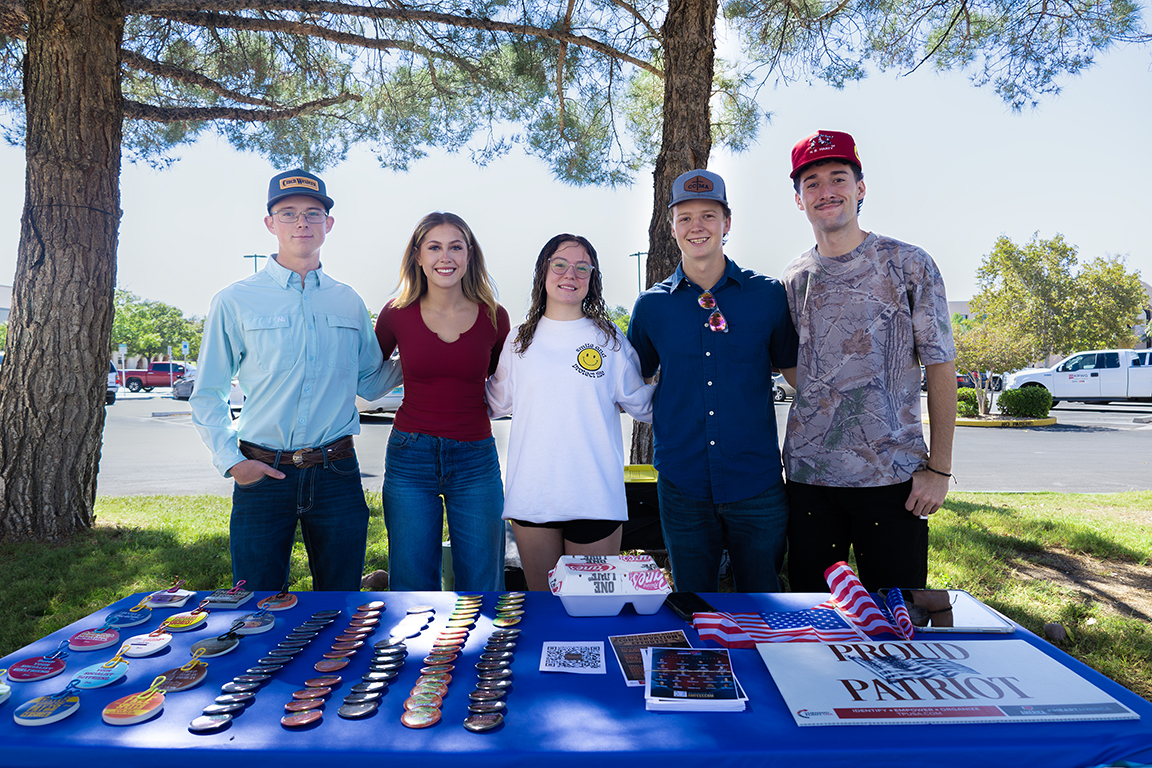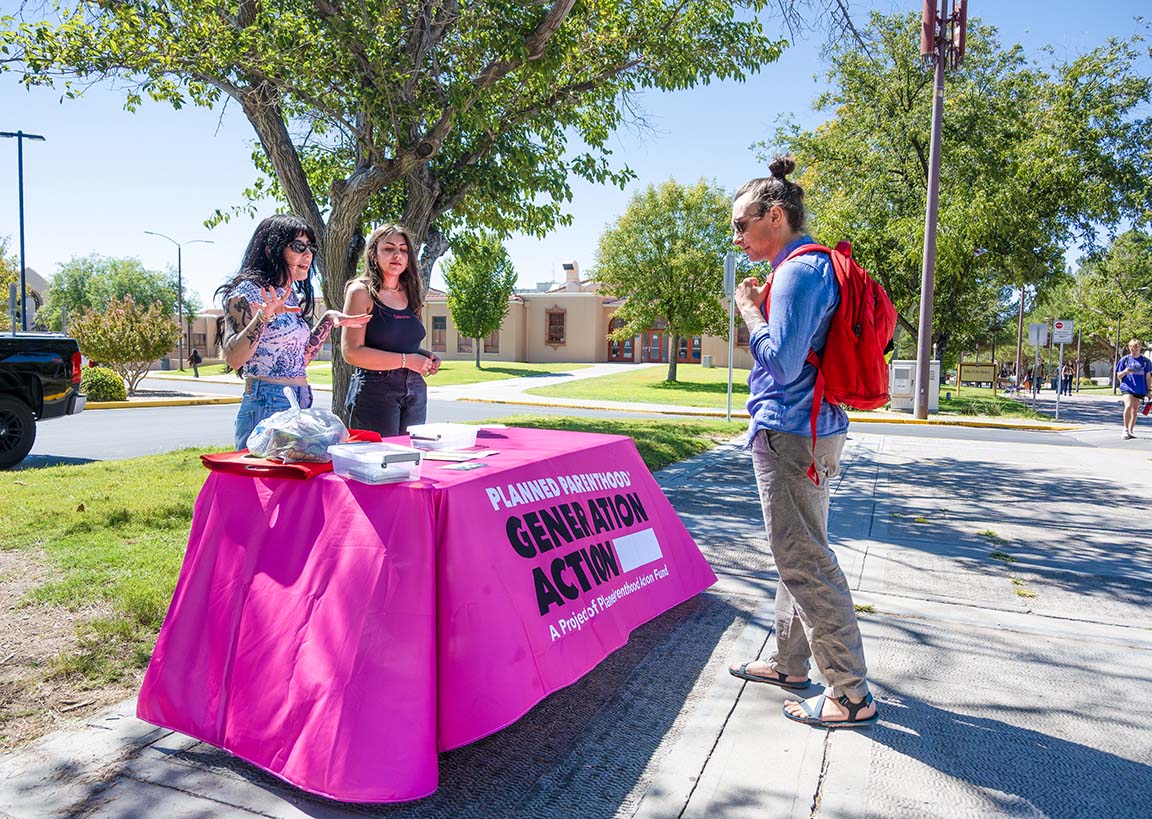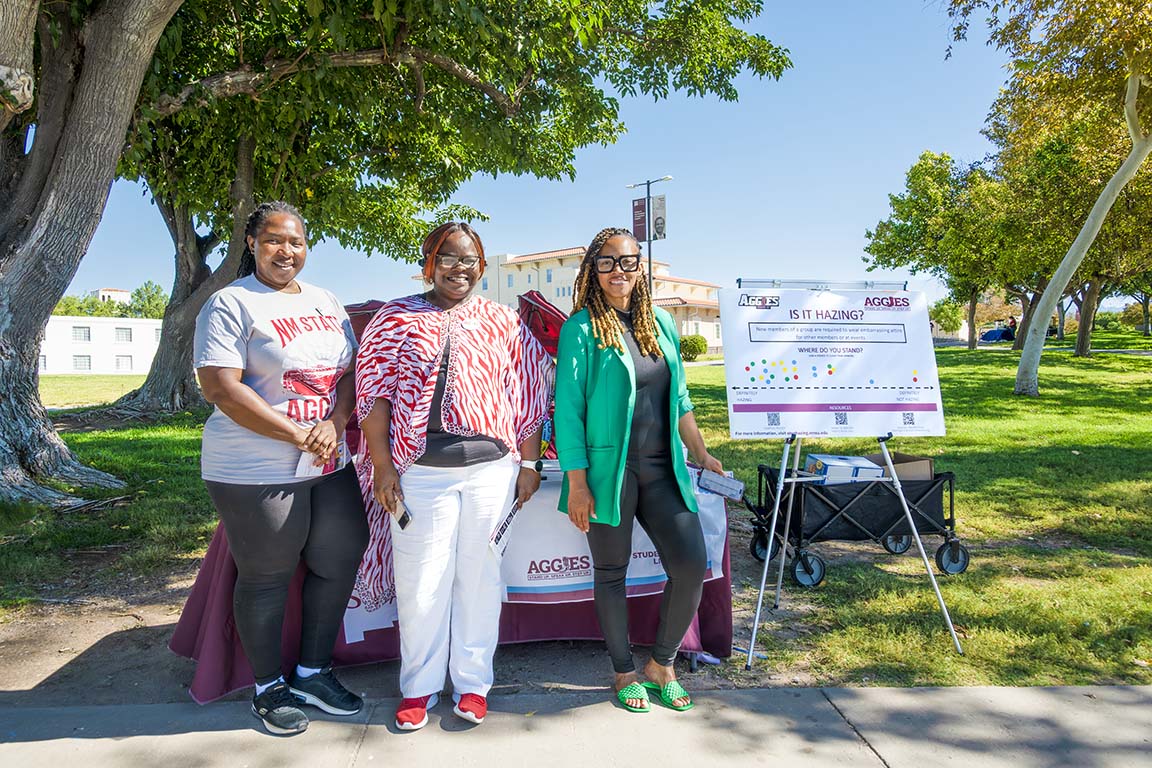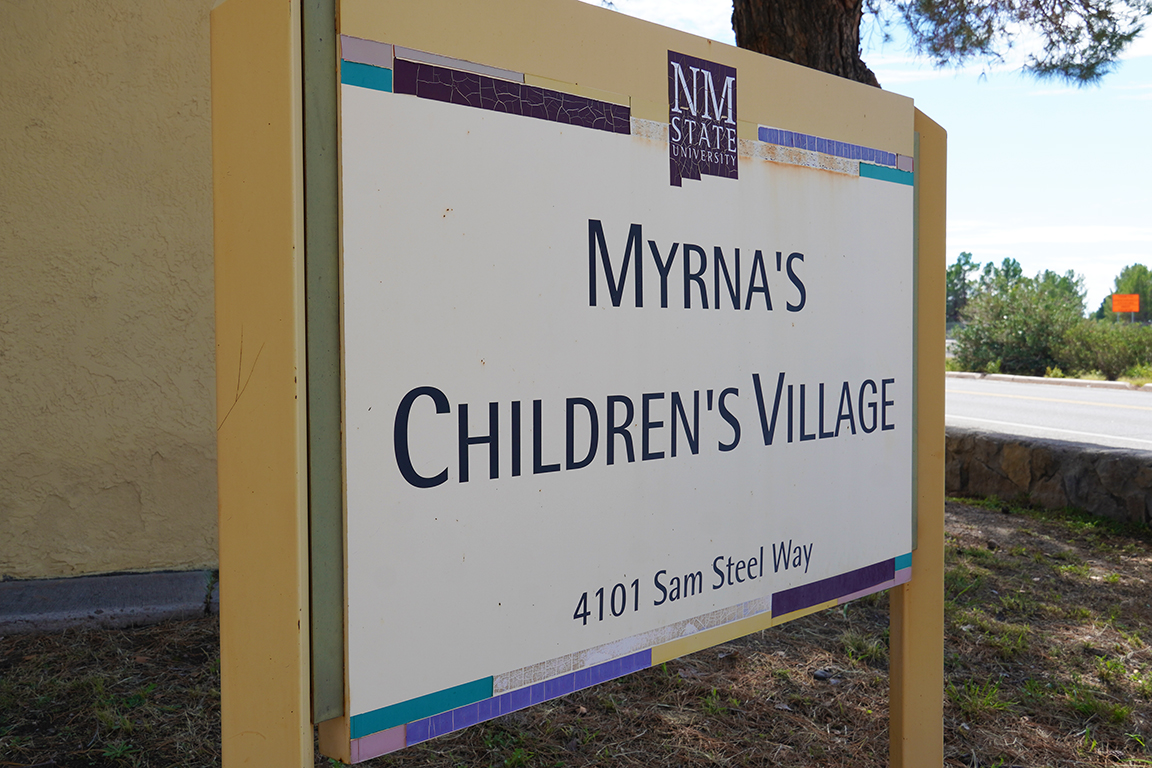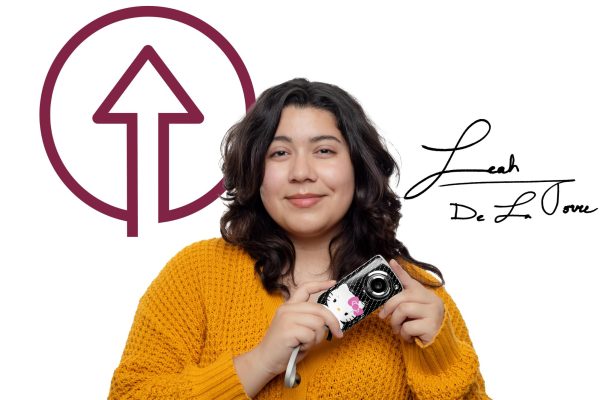“This is Nuestra Lucha, [meaning] our fight!” Claudia Gonzalez Astorga, the Student Program Coordinator for the Latin American Programs, exclaimed while introducing Lucha Libre wrestling icon Cassandro El Exótico from El Paso, Texas. The concluding Latinx Heritage Month event was held Oct. 15 in front of Corbett Center Student Union.
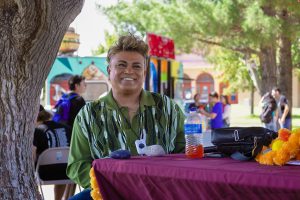
New Mexico State University’s Latin American Program, LGBTQ+ Programs, and the Housing and Residential Department joined forces to provide students with a unique opportunity to engage with Cassandro, also known as Saúl Armendáriz.
The grass lawn in front of Corbett buzzed with energy as students, staff, and community members gathered to see Cassandro and eat free tacos provided by the Luchador Food Truck.
Cassandro, who suffered from a stroke in 2021, told the audience through an alternative communication device that he wrestled for over 37 years and was one of the first exóticos, a luchador who fights in drag.
“My journey has been about more than just fighting in the ring,” Cassandro said. “It’s been about fighting stereotypes, challenging machismo, and making space for those who have been told they don’t belong.”
Cassandro was nicknamed the Liberace of Lucha Libre, for his perseverance and flamboyance, and how it created a new space for queer people in the Lucha Libre community.
“The nickname Liberace of Lucha Libre represents my vision to dazzle, to defy, and to demand respect,” Cassandro said.
Cassandro explained that prior to him, exóticos were considered the comedic relief or background characters in Lucha Libre. They weren’t seen as serious competitors or athletes.
“I trained hard, earned my victories, and proved that an openly gay wrestler could be the main event champion,” Cassandro said.
He said that his presence helped open the door and give other queer wrestlers the courage to be themselves in and out of the ring.
Cassandro endured many inequalities while fighting for his space in the ring. Due to his sexuality, many promoters wouldn’t book him, opponents wouldn’t fight him, and fans yelled slurs at him, he said.
“I got stronger and let my performance speak for itself,” Cassandro said.
Along with fighting homophobia from others, Cassandro also fought addiction and mental health issues.
“Wrestling saved me and kept me going,” Cassandro said. “Every time I stepped into the ring, I fought for more than just a win, I fought for visibility and acceptance of LGBTQ+.”
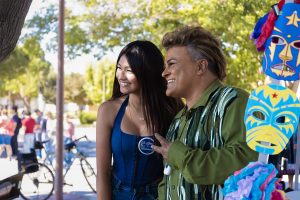
Zarya Martinez, president of NMSU Dream Team, an on-campus club that works with individuals who have immigrated, and also the vice president of the Latin American Council, attended the event.
“As a Latina queer person, I try to find my space and my community and these kinds of events are really exciting,” Martinez said.
Martinez expressed the importance of NMSU holding these types of events.
“Everything about me and my identity and people like me are being considered [on campus],” Martinez said.
Martinez is frustrated by seeing different identities being under attack and sees this event as an opportunity for people to be inspired and keep fighting for their rights.
While Cassandro’s unmistakable impact on various communities drew many people into the crowd during his speech, there are a total of five movies made about Cassandro, which contributed to the excitement generated by the large crowd.
Ana Rodriguez, a spectator at the event, said she wasn’t previously a fan of lucha libre and wrestling, but after watching the 2023 movie Cassandro starring Gael Garcia Bernal and Bad Bunny, she was inspired.
“I love that his story is about the borderlands because I love living in the borderlands,” Rodriguez said.
Another attendee, Amely Estrada, also learned about Cassandro from the 2023 movie. Estrada was dazzled by the story of how Cassandro broke barriers and stereotypes.
“As women, we’re supposed to have our hair long, we’re supposed to be feminine, and we’re supposed to take care of our family,” Estrada said.
Estrada explained that feminine and masculine roles are very common in Hispanic culture. She didn’t grow up with strict gender roles within her own Hispanic household, but watched many friends raised with those expectations.
Estrada said Cassandro shattering those labels in a machismo community and sport inspired her.
John Magnusson and Michelle Bernstein, Associate Directors of Residential Education in the Housing and Residential Department, both expressed their own excitement for the event along with its importance to the NMSU community.
“It’s exactly what our students are looking for, and it’s an intersection of multiple identities that matter to our students,” Magnusson said. “It’s the perfect way for us to engage with the student community in a meaningful manner. That’s really a once-in-a-lifetime opportunity.”
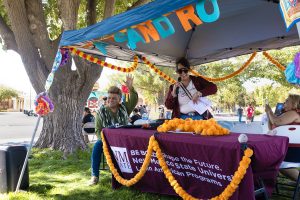
(Leah De La Torre)
Bernstein explained she had watched the movie, and when the Housing and Residential Department was given the opportunity to sponsor the event, she was thrilled.
“I’m so excited, I’m like, fan girl-ing!” Bernstein said.
Gonzalez Astorga head started the event. Astorga grew up in Ciudad Juárez, Chihuahua, Mexico, and related to the struggles Cassandro faced wrestling.
“I want to show the students that if we can do it, and Cassandro did it, all the people can do it.” Gonzalez Astorga said. “Of course, they are going to need resources, and we have resources for them, they cannot do it alone.”
Astorga also emphasized the struggles international and immigrant students experience with cultural differences.
“Everyone is kind of different, but at the same time, we are on the same path,” Astorga said.


